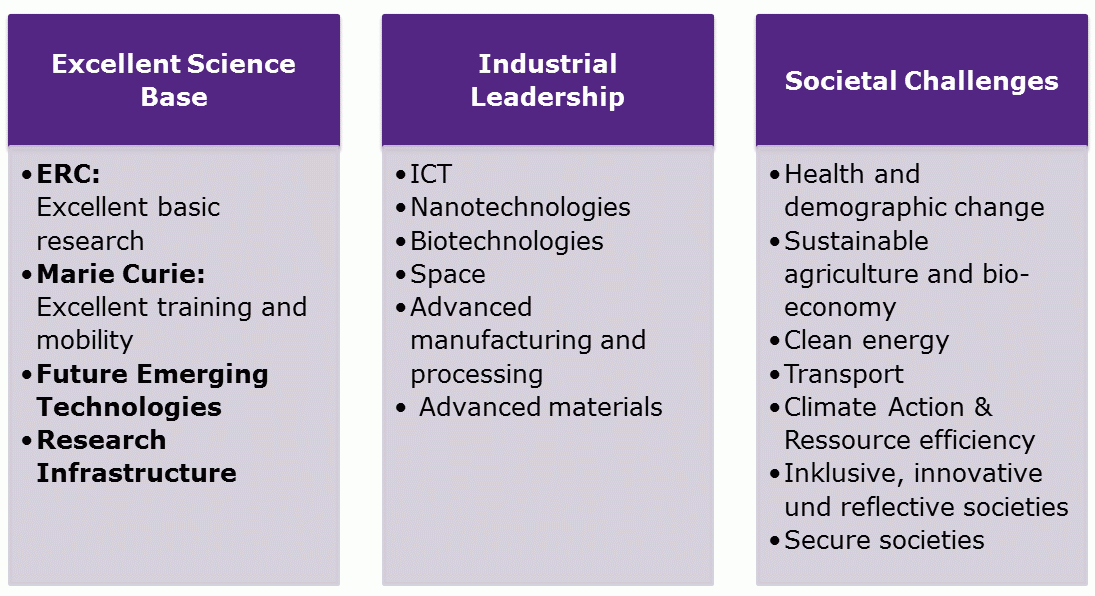FP8: Horizon 2020
The next Framework Programme will not be called FP 8 but Horizon 2020.
Horizon 2020 is the financial instrument implementing the Innovation Union, a Europe 2020 flagship initiative aimed at securing Europe's global competitiveness. Running from 2014 to 2020 with an budget of approximately €70 billion Euro, the EU’s new programme for research and innovation shall be part of the drive to create new growth and jobs in Europe.
Horizon 2020 provides major simplification through a single set of rules. It will combine all research and innovation funding currently provided through the Framework Programmes for Research and Technical Development, the innovation related activities of the Competitiveness and Innovation Framework Programme (CIP) and the European Institute of Innovation and Technology (EIT).
3 Pillars:
Horizon 2020 is built on three pillars:

Excellent Science base
The first pillar includes instruments, that were also part of FP7. The funding of Marie Curie Actions and of the ERC will increase. Future and Emerging Technologies are currently part of the Cooperation Topic "ICT" and Science Infrastructures are currently funded under Capacities.
Goal of the pillar: Strengthening of Europe's Basic Research
Industrial leadership
Also the second pillar includes topics that were already part of PF7 but in the next framework the main focus here will be market oriented. The goal are innovations, which shall strengthen Europe's position versus competitors such as the USA, China and Japan. This pillar will include new funding instruments such as prices for innovations, access to risk finance and pre-commercial procurement. In this pillar research organisations will not be in the driving seat. But they will be important project partners.
Goal of this pillar: More (private) investment in research and innovation
Societal Challenges
These challenges mirror the Europe 2020 Strategy of the European Commission. Whereas the 7th framework funded research disciplines, Horizon 2020 will rather fund the answering of specific research questions inside these 7 challenges. Social sciences and economics are horizontal topics, which will be funded in all seven challenges. In particular topics of the the social sciences and humanities will be called in the seventh challenge.
Goal of this pillar: Research on Europe's Grand Challenges
EIT und Knowledge- and Innovation Centre
The European Institute of Innovation and Technology (EIT) will be part of Horizon 2020, whereas it is now not integrated in FP7. It is the goal of the EIT to facilitate the cooperation between educational/research organisations and the industry. This cooperation shall lead to the enterpreneurs of the future. In the next funding period the commission will enlarge the funding of the EIT dramatically.
The EIT is based on transnational public-private partnerships, known as Knowledge- and Innovation Centres (KIC). Currently there are three Kics running: "KIC InnoEnergy" on sustainable Energy, "Climate KIC" and the "EIT ICT Labs" dealing with ICT and problems of today's communication society. Between 2014 and 2020 6 new KIC will be founded whose topics will be related to the 6 societal challenges of the third pillar of Horizon 2020.
Next Steps
By end 2013: Adoption of legislative acts by Parliament and Council on Horizon 2020
11/12/2013: Horizon 2020 starts; EU will publish the first calls of all pillars